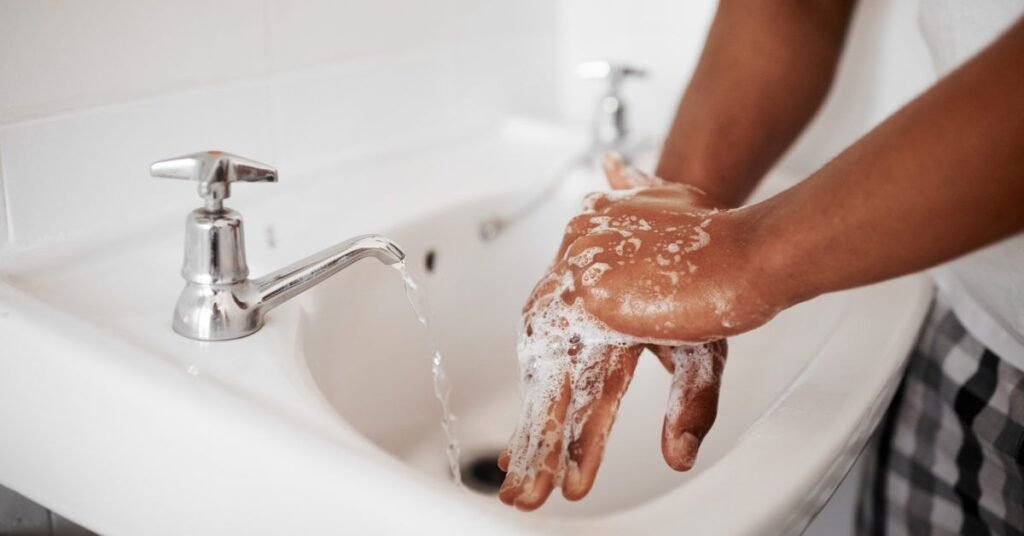Essential Hand Care During COVID-19: Expert Advice for Those with Skin Conditions
As the world grapples with the ongoing COVID-19 pandemic, health authorities unanimously stress the importance of consistent and thorough hand washing to mitigate the spread of the virus. While this practice is vital for hygiene, it can pose challenges, particularly for individuals with skin conditions such as eczema or psoriasis. In this article, we explore expert recommendations to help maintain hand health during these unprecedented times.
The Importance of Hand Washing
Hand washing is a fundamental method to prevent the transmission of his health crisis. According to the World Health Organization (WHO), properly washing your hands can significantly reduce the risk of contracting SARS-CoV-2, the virus responsible for COVID-19. It has spread from Wuhan, China, to every continent, excluding Antarctica, making effective hygiene practices more crucial than ever.
The Impact of Frequent Hand Washing on Skin
While hand washing protects against infections, it can also lead to skin irritation and damage, especially for those with pre-existing skin conditions. Repeated exposure to soap and sanitizers can have adverse effects, including:
- Dryness: Excessive washing strips natural oils from the skin.
- Irritant Hand Dermatitis: Symptoms include flaky, itchy, and red skin, particularly between fingers and knuckles.
- Compromised Skin Barrier: Increased vulnerability to infections.
Dr. Zainab Laftah, a consultant dermatologist and spokesperson for the British Skin Foundation, highlights these concerns, stating that "repetitive use of hand sanitizers and hand washing can strip the proteins in the epidermis, risking skin integrity."
Expert Recommendations for Hand Care
To promote healthy hands while adhering to hygiene guidelines, dermatologists suggest the following strategies:
1. Moisturize Regularly
- Choose a moisturizer to apply after washing.
- Opt for products with antibacterial ingredients like chlorhexidine or benzalkonium chloride for added protection, although alcohol-based gels are more effective against viruses.
2. Wash with Care
- Hand Washing Techniques:
- Use soap or a moisturizer combined with water, followed by a moisturizer.
- If using an alcohol-based sanitizer, apply moisturizer afterward but avoid mixing them simultaneously to preserve antimicrobial properties.
- Consider a moisturizing lather as a soap substitute to minimize skin dryness.
3. Dry Your Hands Properly
- Ensuring hands are completely dry is crucial because:
- Germs transfer more easily between wet hands.
- Water can further deplete natural skin oils, increasing dryness.
4. Immediate Post-Sanitization Care
- If needing to use hand sanitizer, apply an emollient immediately to mitigate skin irritation.
Addressing Concerns for Individuals Under Immunosuppressive Treatment
Many individuals with skin conditions may be on immunosuppressive medications, raising concerns about their vulnerability to COVID-19. Dr. Adil Sheraz reassures that, "there’s no compelling evidence that being on immune suppression increases the risk of contracting COVID-19."
Key Considerations:
- Continue prescribed treatments unless advised otherwise to prevent exacerbating skin conditions.
- Consult healthcare providers to evaluate the risks and benefits of stopping any medication.
The British Association of Dermatologists echoes this sentiment, emphasizing that prescribed creams and medications, when used as directed, do not heighten the risks associated with COVID-19.
Conclusion: Prioritize Hand Hygiene while Preserving Skin Health
In conclusion, while maintaining hygiene is essential for public health during the pandemic, individuals with dry skin or specific conditions must adopt adjusted strategies to care for their hands. Utilize emollients, explore moisturizing soaps, and always consult healthcare professionals when considering changes to treatment protocols – striking a balance between cleanliness and skin health is paramount in these challenging times.
For more information on how to care for your skin during COVID-19, visit trusted sources like the Centers for Disease Control and Prevention and the National Eczema Association.


